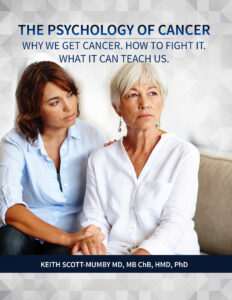I apologize for such a blunt email title. But severe or chronic illness unquestionably inhibits happy and healthy sexual activity for a couple. This can become an immense disconnect when one partner is not well and not feeling like sex, while the other partner is healthy and normal, with typical urges. It can be quite a strain on a relationship.
In the case of cancer, this situation can be made worse by chemotherapy, surgery, hormone therapy or radiation therapy, all of which can impede normal sexual activity. Unfortunately, there is usually very little discussion of this problem among doctors and caregivers. That makes open, honest and sensitive discussions by the couple themselves even more important.
Not all patients experience changes in their urges, while others feel the loss keenly in one or more areas: desire, arousal, orgasm and resolution.
With the growing incidence of cancer, particularly among young individuals (eg, colorectal cancer), increased knowledge and awareness of the potential effects of cancer treatment on sexual health and reproductive potential among physicians and individuals is increasingly important.
Yet such matters are rarely discussed.
The most common sexual change for cancer patients is an overall loss of desire. This is usually due to fatigue but nausea from the treatment can also be an issue. Depression and anxiety, which are pretty normal in certain stages of cancer treatment and recovery, also have a notoriously negative effect on libido.¹
For men, erection problems are common. For women, vaginal dryness and pain with sexual activity are frequent. It is common for patients to need more time or stimulation to reach orgasm. This calls for affection and patience.
Breast surgery, notably mastectomy can also have a damaging effect on self image and desire, as well as all the other undesirable effects of chemo or radiation therapy. So too can hair loss be damaging to a person’s self-image.
It’s vital that the partner stand by their beloved and assure him or her, as often as it takes, they are no less attractive and no less loved!
Blissfully, most men and women are still able to have an orgasm even if cancer treatment interferes with erections or vaginal lubrication, or has involved removing some parts of the pelvic organs. Water-based lubricants, such as KY Jelly, can definitely help (avoid petroleum jelly).
It is not sufficient counselling to imply a diminishment of sexuality is par for the course and, in any case, the patient will have far more on his or her mind than mere gratification. The truth is that love and tenderness between a man and wife, or a romantic couple, can have powerful healing and nourishing qualities which should therefore be indulged and not side-lined.
There are a number of recognized side-effects following common cancer treatment that may affect your desire for sex:
• Fatigue
• Nausea
• Vomiting
• Diarrhea
• Constipation
• Hair loss
• Weight changes
• Scars
• Sensitivity to tastes and smells
While medications are available to treat many of these symptoms, some of these same drugs can decrease sexual desire or make it harder to reach orgasm. Drugs to treat drug side-effects is never a good idea.
If you are having sex during chemotherapy, you may wish to use barrier protection, such as condoms or dental dams (for oral sex), since chemotherapy chemicals can be found in saliva, semen or vaginal fluid and you don’t want to transfer these to your partner.
Radiation therapy from an external machine will not endanger your partner in any way. If you are undergoing brachytherapy, which implants radioactive seeds in your body, you may have to stop sexual activity briefly until the strongest radiation has left the body.
Sex can be a problem if you have bleeding in the genital area following a recent surgery or if your immune system is very weakened. Sometimes a low platelet count can lead to blood clotting defects and that in turn may further any bruising, even when intercourse is very gentle.²
The good news is that most sexual side effects of chemo will disappear when therapy is completed.
The main thing to remember is that the absence of sex does not mean the absence of intimacy. Even if you are unable to achieve an erection or tolerate intercourse, intimate touching and caressing can bolster both your outlook and those all-important feelings of self-esteem.
According to the American Cancer Society, self-stimulation (masturbation) can help ease you back into sexual feelings as you are recovering from chemotherapy.
Risk of Infection
Not directly related to desire and fulfillment is the question of heightened infection risk. Many therapy drugs complicate matters by tuning down the immune system.
For example, people undergoing chemo are often at risk of developing a low white cell count (neutropenia). These immune cells are vital for fighting off infection, and, without them, we are all at risk for infections which might otherwise be harmless.
And that’s where sex can become a problem. Whether vaginal, anal, or oral, each of these activities has the potential to pass infection. If the immune system is compromized, that could be a problem, at least theoretically. In practice, not so much, because a couple who are regularly intimate already share most of each other’s microbiome. In any case, where the risk is substantial, condoms can provide adequate protection from pathogens.
Vaginal infections are common in women undergoing chemotherapy, especially those taking antibiotics or steroids. The infections can cause pain, burning, and irritation to the vagina, often accompanied by a white vaginal discharge. Avoidance of sex is generally advised until the infection clears up—but that’s normal advice for all couples in the same situation.
Genital warts or herpes flare-ups can also be a real problem. Because chemotherapy suppresses the immune system, viruses like human papillomavirus (HPV) and herpes simplex virus (HSV) are able to thrive where they might otherwise be controlled. In fact, some people who have never had an outbreak may suddenly be faced with one after starting treatment.
If your immune system is severely compromised, sexual abstinence may be the only sure way to avoid infection.
In any case, while undergoing treatment you must take care to avoid the complication of pregnancy. Chemo and radiation are both capable of mutagenesis, which could lead to birth defects.
But these are all technical points; important, yes. But nothing to compare to the magic of love and affinity! I think other people have said it well enough; I’m merely repeating it: feelings and good emotions are powerful healers of pain and suffering. It is your DUTY to show love and care when times are stressful.
Anyone can DO love when the going is good. It’s how you measure up when it’s not easy that is the mark of your character. OK, don’t want to be preachy. You’ve got it.
To your good health,
Prof. Keith Scott-Mumby
The Official Alternative Doctor
References:
- Sexual Dysfunction in Females after Cancer Treatment: an Unresolved Issue. Asian Pac J Cancer Prev. 2017 May 1;18(5):1177-1182. doi:10.22034/APJCP.2017.18.5.1177
- https://www.mdanderson.org/patients-family/diagnosis-treatment/emotional-physical-effects/sexuality-cancer.html
FYI, I have decided to add this essay to my book “The Psychology Of Cancer”






